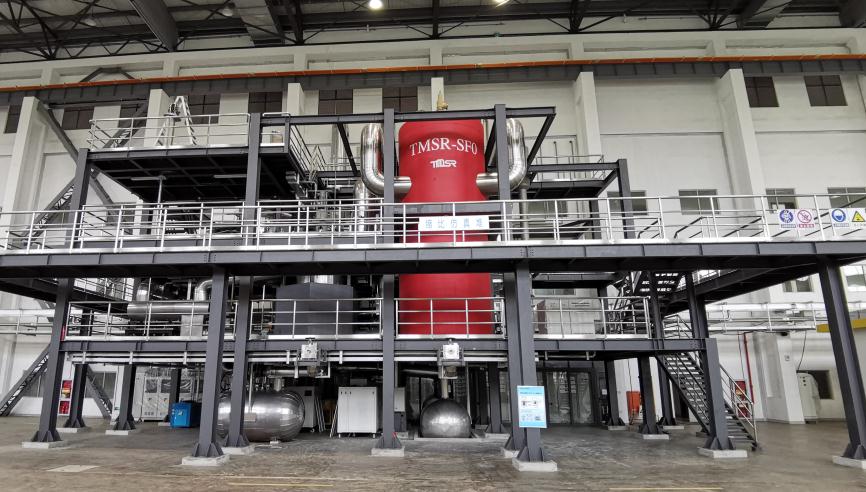According to the Dutch journal ‘De Ingenieur’ (The Engineer), China has given the go-ahead for an experimental nuclear reactor, the thorium-breeding molten-salt reactor (TMSR)
Reactor vessel of the TMSR molten-salt reactor. (Photo: Shanghai Institute of Applied Physics).
The article (in Dutch) features Professor of Reactor Physics Jan Leen Kloosterman (Faculty of Applied Sciences). ‘A milestone’, he is quoted. ‘We are going to learn a lot from this for future molten salt reactors.’ Delta called him for an explanation.
Molten salt reactors (MSRs) get their long name from the fact that they are cooled with molten salt at an operating temperature of about 700 degrees Celsius. That’s a lot more efficient for electricity generation than the current light-water reactors (LWRs), which operate at about 300 degrees.
You speak of ‘a milestone’. Why is this so important?
“It is the first molten salt reactor in 50 years. We can finally gain operating experience with this type of system again and build on it from here.”
The T of TMSR stands for thorium. Is this a thorium reactor?
“The reactor mainly runs on enriched uranium. Some thorium will be added later. However, the reactor is much too small to run on thorium alone.”
You expect to learn from the Chinese experience. Is there any open communication with the researchers?
“There is an exchange of knowledge every six months within the framework of the international Gen IV forum on the fourth generation nuclear reactor. Covid put these meetings on the back burner, but they are now being restarted. Of course, the Chinese will only tell us what they want us to know, so it remains to be seen how much information will be exchanged.”
What does the start-up in China mean for the development of a European thorium reactor?
“If this reactor runs successfully, I hope that more funds will be freed up in the EU for this kind of reactor.”
Also read:
- Thorium conference: is this the nuclear renaissance?, July 2019
- ‘It looks like there is finally some real momentum in this technology’, December 2021
Do you have a question or comment about this article?
j.w.wassink@tudelft.nl


Comments are closed.